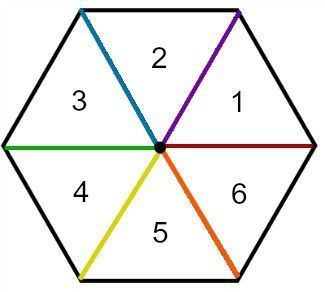Cultivating children's strong interest in mathematics and improving their mathematics ability has always been an important issue for parents. Parents want to prescribe the right medicine, so they ask us to first understand the reasons why children are not good at mathematics, and how to improve children's mathematics ability and lay a solid foundation.
Reasons why children are not good at math
1. Weak math skills
Children's mathematical abilities are relatively weak, which may be the source of difficulty in solving problems. When children first learn mathematics, they often rely too much on memorizing fixed problem-solving routines and lack the ability to flexibly understand changes in problems. This prevents them from developing flexible mathematical thinking and being unable to cope with the challenges of diverse topics.
2. Poor ability to deal with different question types
Some children keep getting stuck making the same types of mistakes over and over again. Each time they correct a mistake, they think they understand it, only to make the same mistake again on the next test. In addition to the lack of carefulness of the children, it is more likely that they do not fully understand and analyze the reasons behind the mistakes, so the same type of mistakes keep appearing.
3. Children lose interest in mathematics
Due to the widespread use of cramming education methods in schools, coupled with teachers' inherent teaching methods, children only stay on the surface of mathematical knowledge and find it difficult to apply skills and thinking to real life. Even if some students perform well in math skills, they often become confused when faced with real-life math problems. In addition, as the difficulty of solving problems continues to increase, children will feel frustrated and lose interest in learning mathematics.
4. Insufficient language skills
When children are unable to start after getting a question, parents need to remind them of the key words in the question. This is because their reading ability is relatively weak, which can easily lead to insufficient understanding of the topic, which can lead to errors or deviations, thus affecting their ability to solve problems. In the long run, this situation may weaken children's confidence in solving problems.
5. Repeatedly making mistakes on similar math questions
Some children keep getting stuck making the same types of mistakes over and over again. Each time they correct a mistake, they think they understand it, only to make the same mistake again on the next test. In addition to the lack of carefulness of the children, it is more likely that they do not fully understand and analyze the reasons behind the mistakes, so the same type of mistakes keep appearing.
1. Images and auxiliary teaching aids to improve mathematical skills
These children are unable to understand the key elements of the problem and require assistance through visual aids. These teaching aids can help them see the nature of the problem more clearly, leading to better understanding and memory. Through visualization, they can more easily recognize problem patterns and avoid making mistakes on the same type of problems.
2. Develop the ability to answer multiple questions and respond to different question types
In order to improve children's adaptability, we should encourage them to use different mathematical methods to solve problems. Although some methods may be slower to calculate, through this method, children can more clearly see the evolution of numbers and the relationship between addition and subtraction. Such training not only helps them understand mathematical concepts more comprehensively, but also develops their flexible thinking and problem-solving abilities.
3. Use mathematical thinking to solve problems in life and increase the interest of mathematics.
In order to rekindle children's interest in mathematics, we can attract them through games and competitions. Such an atmosphere allows children to explore the principles of mathematics more focused and at the same time be motivated and inspired by other contestants. Through this competitive environment, children will be more motivated to overcome difficulties and enjoy the sense of accomplishment in solving problems, thus rekindling their passion for mathematics.
4. Improve reading skills to solve problems correctly
Children may have insufficient word recognition, which further hinders their full understanding of the topics. Therefore, we need to strengthen children's language skills, including reading and word recognition skills, to improve their accuracy and self-confidence in solving problems.
5. Repeatedly doing wrong questions means that you have not developed a good habit of thinking in mathematics.
When children first learn mathematics, they often rely too much on memorizing fixed problem-solving routines and lack the ability to flexibly understand changes in problems. This prevents them from developing flexible mathematical thinking and being unable to cope with the challenges of diverse topics. Therefore, children should read more different mathematical stories and calculation methods, use mathematical principles to run through different mathematical topics, and develop a mathematical mind.





